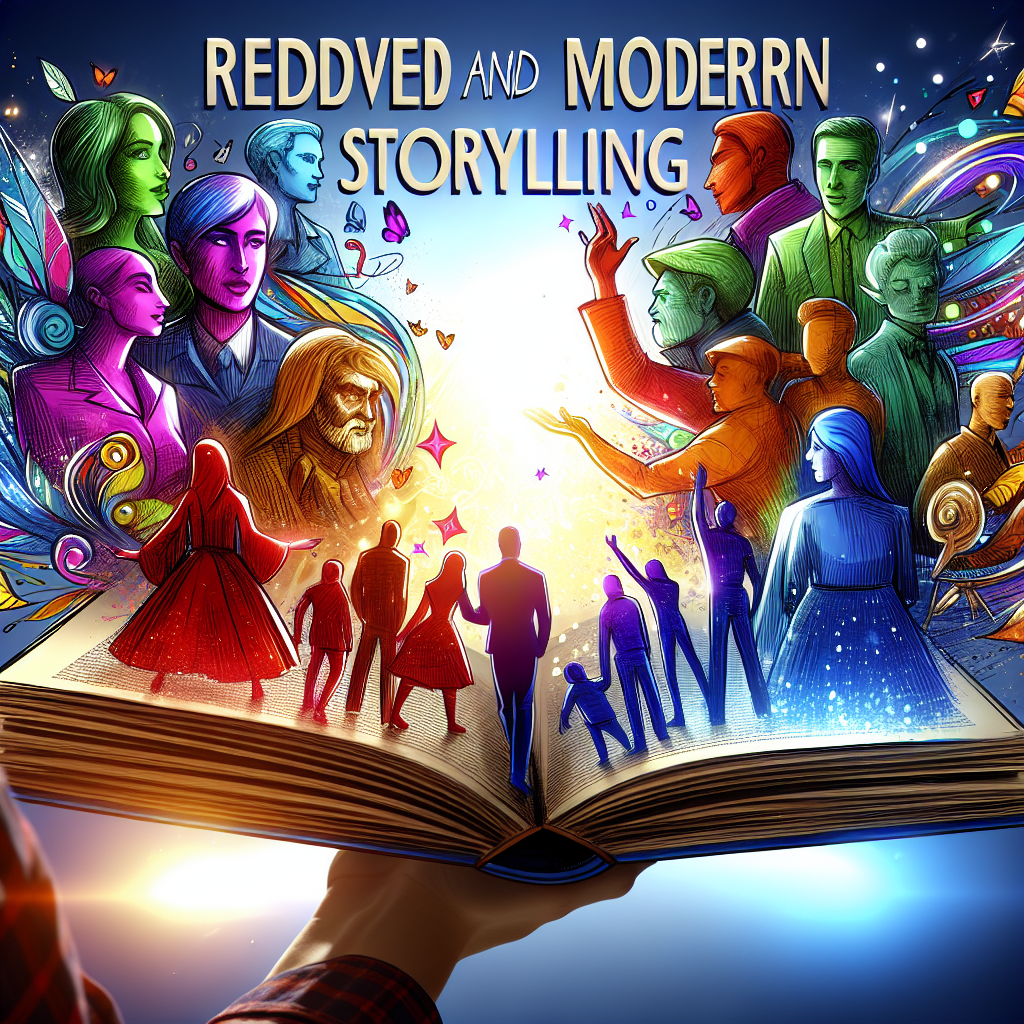Disney’s Bold New Era: How Woke Storytelling is Redefining Classic Characters and Captivating a New Generation
In recent years, Disney has embraced a new approach to storytelling that often gets labeled as "woke." This term, while sometimes used pejoratively, encapsulates a broader cultural shift towards inclusivity and representation in entertainment. As the Mouse House reimagines classic characters and narratives, it opens the door to an exciting era that resonates with a diverse audience. Let’s dive into how Disney's bold new era of storytelling is not only redefining beloved characters but also captivating a new generation of fans.
Reimagining Timeless Classics
Disney has a rich history of fairy tales and animated classics, but with the rise of cultural consciousness, many of these stories have come under scrutiny. Characters like Ariel from "The Little Mermaid" and Mulan from "Mulan" are being reinterpreted in ways that reflect modern values and social issues. For instance, the upcoming live-action adaptation of "The Little Mermaid" features Halle Bailey as Ariel, showcasing a Black actress in a role that has traditionally been depicted as white. This change is not merely cosmetic; it speaks to the importance of representation and the impact it can have on young audiences who see themselves reflected in their heroes.
Moreover, Disney is also taking a closer look at the narratives that underpin these classic tales. By addressing themes like consent, empowerment, and personal agency, Disney is crafting stories that challenge outdated tropes. The recent remake of "Mulan" emphasizes the character's strength and independence, moving away from the romantic subplot that overshadowed her journey in the animated version. This shift not only refreshes the story but also aligns it with contemporary values, making it more relatable to today’s viewers.
Diversity in Storytelling
One of the most significant aspects of Disney's new approach is its commitment to diversity both in front of and behind the camera. The studio has been increasingly focused on hiring writers, directors, and actors from a variety of backgrounds to create authentic narratives that resonate with a broader audience. For instance, the Pixar film "Soul" features a predominantly Black cast and was directed by a Black filmmaker, Kemp Powers. This commitment to diversity not only enriches the storytelling but also ensures that the cultural nuances are accurately represented.
Disney's streaming platform, Disney+, has also become a hub for diverse stories. Shows like "Ms. Marvel" and "Andor" bring fresh perspectives to the superhero and sci-fi genres, respectively. "Ms. Marvel," for example, introduces Kamala Khan, a Pakistani-American teenager, making her the first Muslim superhero to headline her own series in the Marvel Cinematic Universe. This kind of representation goes a long way in normalizing diversity in mainstream media, creating a space where young viewers can see themselves as heroes.
Engaging with Contemporary Issues
Disney’s storytelling is not just about representation; it's also about engaging with contemporary issues that matter to today's audience. For instance, the animated series "Big Hero 6: The Series" explores themes such as mental health, friendship, and the impact of technology on society. By tackling these subjects head-on, Disney is creating narratives that are not only entertaining but also socially relevant.
Additionally, Disney has taken a stand on various social issues, such as climate change and LGBTQ+ rights. The animated short film "Out" from Pixar showcases a gay protagonist grappling with his identity and coming out to his parents. This bold move not only entertains but also educates young audiences about acceptance and love in all its forms. Such stories can foster empathy and understanding, helping to cultivate a generation that values inclusivity and compassion.
The Future of Disney’s Storytelling
As Disney continues to evolve, the future of its storytelling looks bright and promising. The studio is likely to further embrace "woke" storytelling, pushing boundaries while remaining committed to the core values that have made Disney an iconic brand. By challenging traditional narratives and striving for inclusivity, Disney is not just creating content; it's fostering a movement that encourages audiences to reflect on their own identities and the world around them.
This era of storytelling is not without its critics, but it’s essential to recognize that art and culture are always evolving. As new generations grow up with these redefined characters and stories, the hope is that they will carry forward the values of diversity, empathy, and understanding. Ultimately, Disney's bold new era is about more than just fresh takes on old tales; it’s about shaping a more inclusive world, one story at a time.
In conclusion, Disney's commitment to "woke" storytelling is more than a trend; it's a transformative approach that seeks to reimagine its legacy for a new audience. As the company continues to navigate this exciting path, fans can look forward to a plethora of stories that not only entertain but also inspire, challenge, and reflect the rich tapestry of our diverse world.

No comments yet. Be the first to comment!